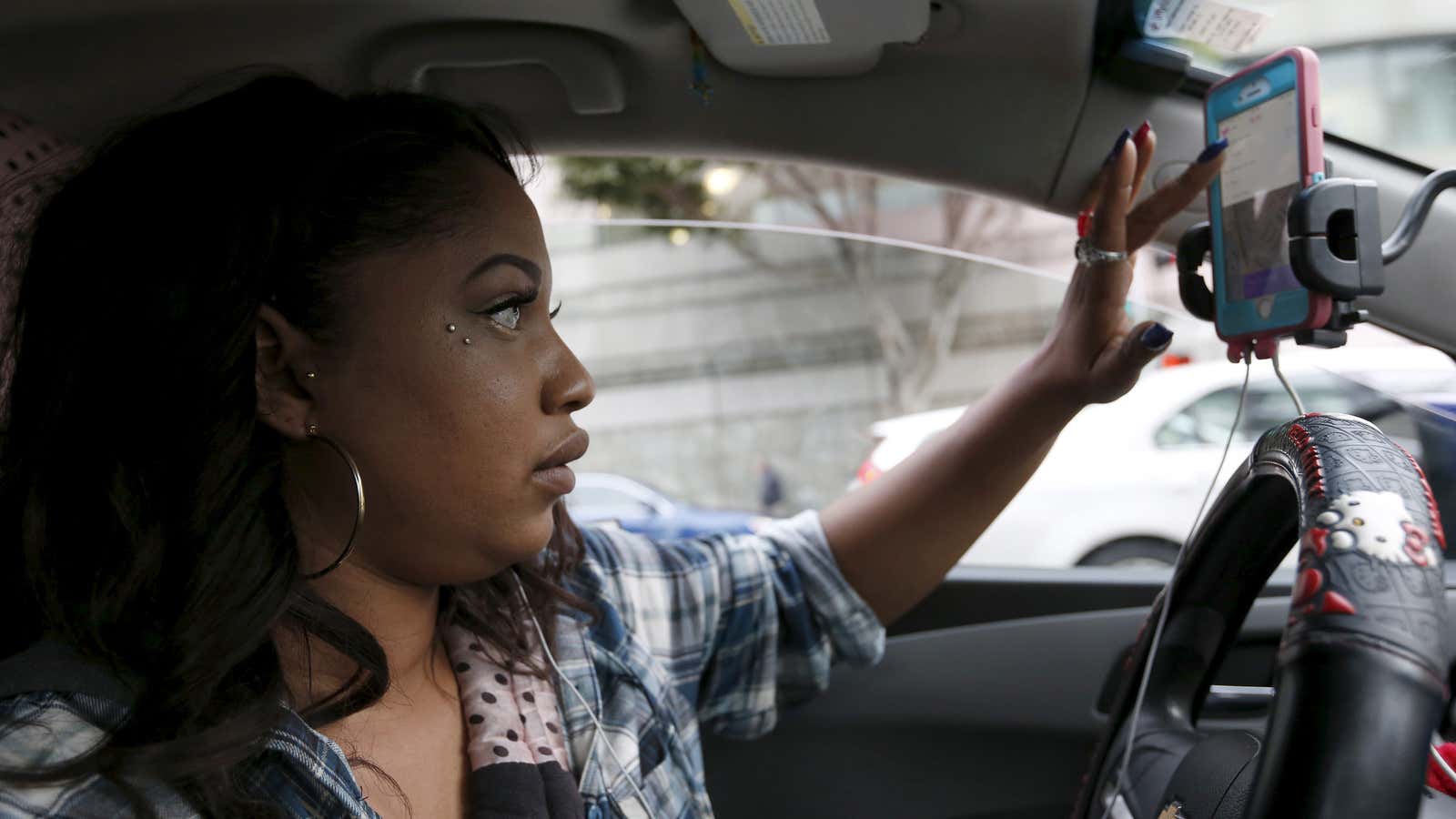Black riders wait “significantly longer” for their Ubers and experience double the cancellation rates of white passengers, according to a new research paper. The study, published this month by the National Bureau of Economic Research, finds “significant evidence of racial discrimination” in ride-hailing services based on a pair of experiments conducted in Seattle and Boston.
In the Seattle experiment, researchers hired eight students at the University of Washington—two black women, two white women, two black men, and two white men—to request and collect data on trips with Uber, Lyft, and Flywheel (another ride-hailing startup). The students were assigned travel routes, days, and times. Crucially, the ride-hailing process is slightly different for each company. Lyft drivers see a passenger’s profile photo as part of an incoming ride request. Uber drivers only get details on passengers once they accept a trip. Flywheel’s service does not include photos of passengers in their profiles.
Over 581 trips, the researchers found that the four black riders waited longer to have their trip requests accepted by a driver. Once that happened, black riders on Uber specifically also waited 30% longer to be picked up. The researchers thought this indicated discrimination because the estimated wait times provided to the riders by Uber were all fairly comparable. They also theorized that black riders were taking longer to be picked up on Uber because drivers were more likely to cancel the trip after seeing the rider’s personal details, causing delays while requests were reassigned.
To help answer some of these questions, the researchers switched things up in Boston. Instead of using riders who were clearly black or white, they recruited eight students “whose appearance allowed them to plausibly travel as a passenger of either race” and had them create two different rider profiles for both Uber and Lyft: one with an “African American sounding” first name and one with a “white sounding” first name. The students were told to pay most attention to whether drivers cancelled on them. Over 911 trip requests, they found Uber drivers were twice as likely to cancel on passengers with black-sounding names. On Lyft, however, cancellations rates were slightly higher for white riders.
The study offers an interesting counterpoint to other research on ride-hailing and race, which has tended to find that companies like Uber are alleviating discrimination. In particular, a report on the “shared” economy from Pew Research Center in May concluded that Uber was used more by people of color. Fifty-four percent of users surveyed by Pew agreed that ride-hailing was “a good option for people who have trouble getting taxis to pick them up based on their race of appearance,” and 50% said ride-hailing helped to “serve neighborhoods that taxis won’t visit.” That contrasted with home-sharing services like Airbnb, which are more popular among the white and wealthy.
Traditional taxis are notorious for not picking up people of color or frequenting poorer neighborhoods. In New York City, Uber has built a tremendous business in the outer boroughs (i.e., not Manhattan) in large part by going where yellow and green cabs don’t. The NBER paper noted discriminatory behavior among taxis as well. When the students in Seattle tried hailing cabs for the sake of comparison, drivers stopped nearly 60% of the time for white riders, compared with less than 20% for black ones.
Uber, for its part, seems to be taking the findings relatively well. “We believe Uber is helping reduce transportation inequities across the board,” Rachel Holt, Uber’s head of North American operations, said in a statement, “but studies like this one are helpful in thinking about how we can do even more.”
